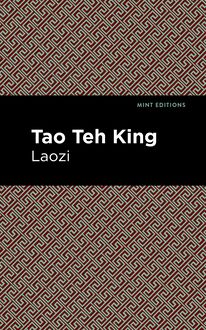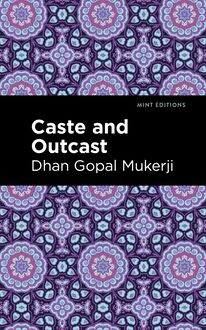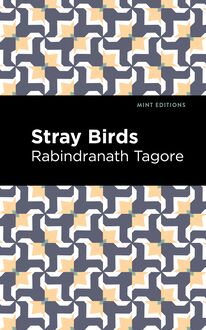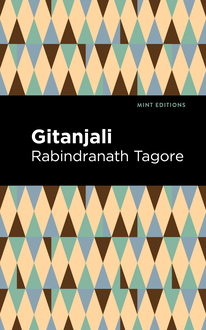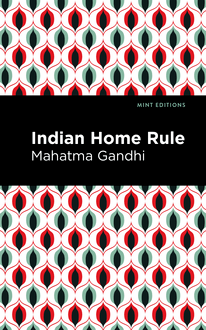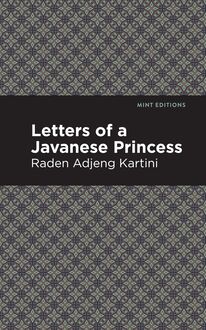-
 Univers
Univers
-
 Ebooks
Ebooks
-
 Livres audio
Livres audio
-
 Presse
Presse
-
 Podcasts
Podcasts
-
 BD
BD
-
 Documents
Documents
-
- Cours
- Révisions
- Ressources pédagogiques
- Sciences de l’éducation
- Manuels scolaires
- Langues
- Travaux de classe
- Annales de BEP
- Etudes supérieures
- Maternelle et primaire
- Fiches de lecture
- Orientation scolaire
- Méthodologie
- Corrigés de devoir
- Annales d’examens et concours
- Annales du bac
- Annales du brevet
- Rapports de stage
La lecture à portée de main
Vous pourrez modifier la taille du texte de cet ouvrage
Découvre YouScribe en t'inscrivant gratuitement
Je m'inscrisDécouvre YouScribe en t'inscrivant gratuitement
Je m'inscrisEn savoir plus
Vous pourrez modifier la taille du texte de cet ouvrage
En savoir plus

Description
Caste and Outcast (1923) is an autobiography by Dhan Gopal Mukerji. Published the year after Mukerji moved from San Francisco to New York City, Caste and Outcast is a moving autobiographical narrative from the first Indian writer to gain a popular audience in the United States. Although he is more widely recognized for such children’s novels as Gay Neck: The Story of a Pigeon (1927), which won the 1928 Newbery Medal, and Kari the Elephant (1922), Mukerji was also a gifted poet and memoirist whose experiences in India, Japan, and the United States are essential to his unique perspective on twentieth century life. “As I look into the past and try to recover my earliest impression, I remember that the most vivid experience of my childhood was the terrific power of faces. From the day consciousness dawned upon me, I saw faces, faces everywhere, and I always noticed the eyes. It was as if the whole Hindu race lived in its eyes.” Raised in a prominent Brahmin family, Dhan Gopal Mukerji enjoyed immense privileges in his native India and came to trust in the effectiveness and fairness of the country’s caste system. As a young man, however, no longer enthralled with the ascetic lifestyle explored in his youth, Mukerji devoted himself to nationalist politics and eventually left India for Japan. Unsatisfied with life as an engineering student, he emigrated once more to the United States, where he moved in anarchist and bohemian circles while embarking on a career as a popular poet and children’s author. Although he never returned to his native country, Mukerji left an inspiring legacy through his literary achievement and unwavering commitment to Indian independence. With a beautifully designed cover and professionally typeset manuscript, this edition of Dhan Gopal Mukerji’s Caste and Outcast is a classic of Indian American literature reimagined for modern readers.
Sujets
Informations
| Publié par | Mint Editions |
| Date de parution | 03 août 2021 |
| Nombre de lectures | 0 |
| EAN13 | 9781513217598 |
| Langue | English |
| Poids de l'ouvrage | 3 Mo |
Informations légales : prix de location à la page 0,0500€. Cette information est donnée uniquement à titre indicatif conformément à la législation en vigueur.
Extrait
Caste and Outcast
Dhan Gopal Mukerji
Caste and Outcast was first published in 1923.
This edition published by Mint Editions 2021.
ISBN 9781513218595 | E-ISBN 9781513217598
Published by Mint Editions ®
minteditionbooks .com
Publishing Director: Jennifer Newens
Design & Production: Rachel Lopez Metzger
Project Manager: Micaela Clark
Typesetting: Westchester Publishing Services
To My Friends
E MILY S PACKMAN
C ATHARINE AND C LARENCE B ISHOP S MITH L UCY H ORGAN
C ONTENTS P ART I . C ASTE I. C HILDHOOD II. M Y L ITTLE S ISTER III. T HE H OLY M AN IV. I NITIATION V. P ILGRIMAGE, B ENARES VI. P ILGRIMAGE, THE H ILLS VII. T HE C ASHMERE S HAWL VIII. I DOLS IX. T HE P RIEST X. T RADING S HAWLS XI. M Y B ROTHER’S M ARRIAGE XII. E AST AND W EST P ART II. O UTCAST I. I NITIATION INTO A MERICA II. M Y S OCIALIST “ F RIENDS” III. T HE S ECOND Y EAR IN C OLLEGE IV. S OMETHING OF F RANK’S L IFE V. W HAT IS THE A NSWER ? VI. I N C ALIFORNIA F IELDS VII. S PIRITUALISM E PILOGUE
PART I
CASTE
I
C HILDHOOD
I am a Hindu of Brahmin parentage, and I was born and brought up in a small village near Calcutta. Though the early part of my life was much like that of other children of my caste, I find that in attempting to describe it to English readers, I am at once in a dilemma. The narrative, slight as it is, seems to require continual interruption in order to explain the real meaning of the simple incidents of my childhood and youth—simple, that is, in the Hindu’s experience. But there has been so much misconception about India, especially with regard to our education and social customs, that I am tempted to let the narrative go to the wall in favor of what a western friend of mine calls “the oriental’s fondness for vague philosophizing.”
Indian life cannot be understood with even moderate justice, if its constant background of religious thought remain unrealised. That is the difference between the point of view of the most humble Hindu and such a brilliant painter of Indian life as Mr. Kipling. I use the word painter advisedly, for everything that the eye alone can take in, that Mr. Kipling not only sees but completely conveys. No one, however, except a Hindu, to whom the religion of his country is more real than all its material aspects put together, can understand Indian life from within. But here is the dilemma—to convey this in a manner consistent with the western idea of what a book ought to be. I fear it is impossible. However, when I came to America, I encountered, as you will hear if you will follow me so far, an object which figures much in American controversial, if not philosophic life—I mean the “soap box.” And when my western auditor sees me mounting this humble platform to quote and expound, I hope for a degree of sympathy with my effort to present a more intimate impression of eastern life.
A S I LOOK INTO THE past and try to recover my earliest impression, I remember that the most vivid experience of my childhood was the terrific power of faces. From the day consciousness dawned upon me, I saw faces, faces everywhere, and I always noticed the eyes. It was as if the whole Hindu race lived in its eyes. As I grew up, wherever I went on all my pilgrimages and travels, I continued to feel the wonder of faces, the faces of nature, the faces of animals, the faces of people. There was a vast procession of ideals and desires moving before me as I watched these faces and behind each I caught the gleam of a thought and began to form an idea of the person himself.
The jungle is the next thing that I remember. Our house was situated at the edge of the forest not far from the town. In the evenings, after the lights were out, we used to sit by the open window looking towards the forest. I remember one evening especially; though I must have been a very little child at the time. I was gazing into the darkness outside when I saw something that appeared to me like a huge jeweled hand. This hand, with rings gleaming on all its fingers, was slowly coming toward me out of the jungle. The movement of the hand in the darkness was intense and terrifying. I cried with fright, and my mother, putting her arms about me, said: “Fear not, little son. Those are only the eyes of the foxes and jackals and hundreds of other small jungle dwellers coming and going about their business.” I was overawed by the fierce power of life, and I watched in silence the tremendous black masses of dark trees with the emptiness gleaming all around them, and the innumerable fireflies flitting about. My grandfather, who was fond of quoting poetry, said: “The earth is mocking the stars by throwing out her illumination,” and at last, soothed and quieted, I was put to bed.
We lived in the outskirts of a town near Calcutta, my grandfather, father, mother and my brothers and sisters and I. As we were Brahmins, we had charge of the village temple which had been in the family for generations. I was the youngest, and of an enquiring turn of mind, I imagine, for my grandfather used to say I asked more questions than any other child he had ever known. Perhaps that is why I observed and remembered many things that to the average Hindu child might be so usual in daily life as to be unconsidered and forgotten.
I remember every hour of our ritual, and there is a ritual for every hour of the day in India; the ritual peculiar to Brahmin households like ours, and the ritual of the peasant and the workman. The members of my family, the townspeople, the laborers in the field, the many beggars—each followed an intricate and age-old pattern of life, from sudden sunrise, through fervid noon, to the heavy fall of night and silence. I used to hear people before dawn making ready for the sun. In the jungle the elephants had bathed and the tiger had gone, and all the small animals had come home to their lairs. Then I heard the song birds, and afterwards the darkness rose and the sun came galloping up like a horse of flame, and hundreds of people outside our temple gates and in the streets and in the fields waited to greet him. I used to watch them from our windows when I was too little to go out alone. They lifted their hands and chanted the verses that every day, for four thousand years, have greeted the rising sun in India:
O blossom of eastern silence, wandering upon paths dustless and untainted by the feet of man, bring thou the dawnward way, and be our advocate before the speechless God!
Later in the day the schoolchildren trooped by, their hands full of flowers. They were bringing them to our temple on their way to school, and they held them carefully, never smelling their perfume, as that would be considered contaminating to a holy offering. As they went, they repeated:
Come, gather flowers for the temple! The wind falls like audible silence! The winged and the four-footed ones dance to mark the beat of the steps of silence.
They used to enter the temple and leave their flowers with my brother, who was at that time the priest in charge, and then they would go on to school singing:
With hands dipped in the colors of music and wisdom, bless us, O Goddess of Learning!
This is the usual custom that all Hindu children observe.
As the day wore on the beggars would come and sing, asking for food or small coin. When I grew older I took an immense interest in these people who throng the streets of Indian towns, especially near a temple. I remember how they would sing from door to door and often stop and talk with the people. One old man who came to our house and received a bowl of rice from my sister, gave me while he was eating, this definition of truth. “If you put all the good deeds of men in one scale of the balance and the search after truth in the other scale, the scale that has the search after truth will always be the heavier. Truth is that which holds the world together. Truth is that which feeds the universe on its heart as the child is fed on the mother’s breast.”
I must have been still a little child when I learned to watch for the lantern man, who before dusk would come through the lanes of our village blessing every house. I used to creep out and listen to him intone these words: “O Lord, may goodness wash away any malice that abides at these doorsteps!”
In our household, my mother was the first one to rise in the mornings. She got up about five and would always sit and meditate for half an hour so as not to disturb the morning silence. In India a woman is a goddess and must be ready at all times to be worshipped. When we children were up, we would go to her and bow before her and remove the dust from her feet. Every morning I would salute my mother and my father. To my mother I said, “You are my God, my way to God,” and to my father, “You are the Way, and the End. O my father, teach me to find the Way!”
My mother was a very simple woman. She did not know how to read and write. This will seem strange to western readers, but it is in accordance with the traditional education of a lady in India, and my mother being of the old school, considered that anyone who could count beyond a hundred was too forward to be a lady. She used to say: “Don’t you think an understanding heart knows, if not more, at least all that is in the printed page? The heart is the king who knows all things and has all things. The head is only the palace. If your prince be dead, what good is the empty palace?”
My mother was a busy woman, for in India it is the mother who takes entire charge of the children and their education until they are ten or twelve years old. There were eight of us, and a large household to run, and my mother never spent less than three hours a day in prayer and meditation. Yet her life and personality were so quiet, her duties were conducted so softly and with so much gentleness, that as I look back it seems to me as though it must have been tranquillity and not energy that was the motive power in o
-
 Univers
Univers
-
 Ebooks
Ebooks
-
 Livres audio
Livres audio
-
 Presse
Presse
-
 Podcasts
Podcasts
-
 BD
BD
-
 Documents
Documents
-
Jeunesse
-
Littérature
-
Ressources professionnelles
-
Santé et bien-être
-
Savoirs
-
Education
-
Loisirs et hobbies
-
Art, musique et cinéma
-
Actualité et débat de société
-
Jeunesse
-
Littérature
-
Ressources professionnelles
-
Santé et bien-être
-
Savoirs
-
Education
-
Loisirs et hobbies
-
Art, musique et cinéma
-
Actualité et débat de société
-
Actualités
-
Lifestyle
-
Presse jeunesse
-
Presse professionnelle
-
Pratique
-
Presse sportive
-
Presse internationale
-
Culture & Médias
-
Action et Aventures
-
Science-fiction et Fantasy
-
Société
-
Jeunesse
-
Littérature
-
Ressources professionnelles
-
Santé et bien-être
-
Savoirs
-
Education
-
Loisirs et hobbies
-
Art, musique et cinéma
-
Actualité et débat de société
- Cours
- Révisions
- Ressources pédagogiques
- Sciences de l’éducation
- Manuels scolaires
- Langues
- Travaux de classe
- Annales de BEP
- Etudes supérieures
- Maternelle et primaire
- Fiches de lecture
- Orientation scolaire
- Méthodologie
- Corrigés de devoir
- Annales d’examens et concours
- Annales du bac
- Annales du brevet
- Rapports de stage

